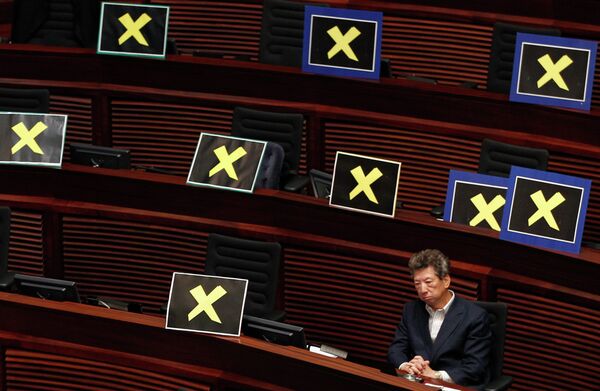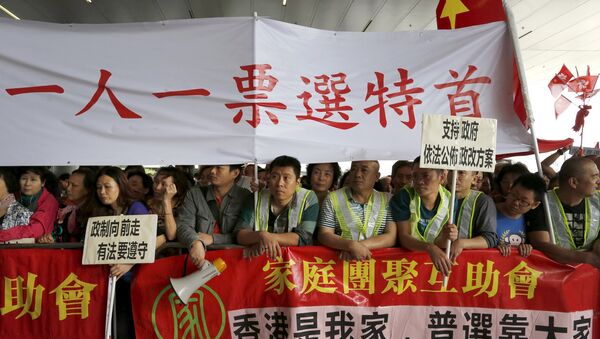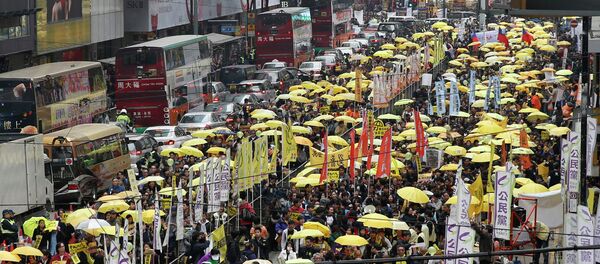According to the reform project, hopefuls for the top job will be first screened by a special nominating committee that will shortlist the candidates twice before about five million Hong Kong residents get to vote on the remaining few.
The candidates will also have to secure the support of at least 120 members of the 1,200-strong committee in the first round of screening, and get more than 601 votes in the second. Only two to three candidates will be eligible to run in the public election.
"These proposals are in strict compliance with the Basic Law [Hong Kong's constitution] and the relevant decisions of [China's] standing committee of the National People's Congress. At the same time, they fully take into account the views expressed by various sectors of the community," Hong Kong Chief Secretary Carrie Lam said.

Opponents of the proposed reforms have argued that what is being suggested does not amount to universal suffrage, accusing Beijing of attempting to remove politically undesirable candidates from the ballot list.
Wearing black jerseys with yellow crosses to symbolize their pledge to oppose the proposal on "fake universal suffrage", 27 democratic lawmakers walked out of the legislative chamber in protest on Wednesday.
A blueprint to vet candidates for the Hong Kong election was first tabled last August by the National People's Congress Standing Committee, which triggered mass protests across the city. Thousands of demonstrators took to the streets in Hong Kong, shutting down parts of the city for weeks.



